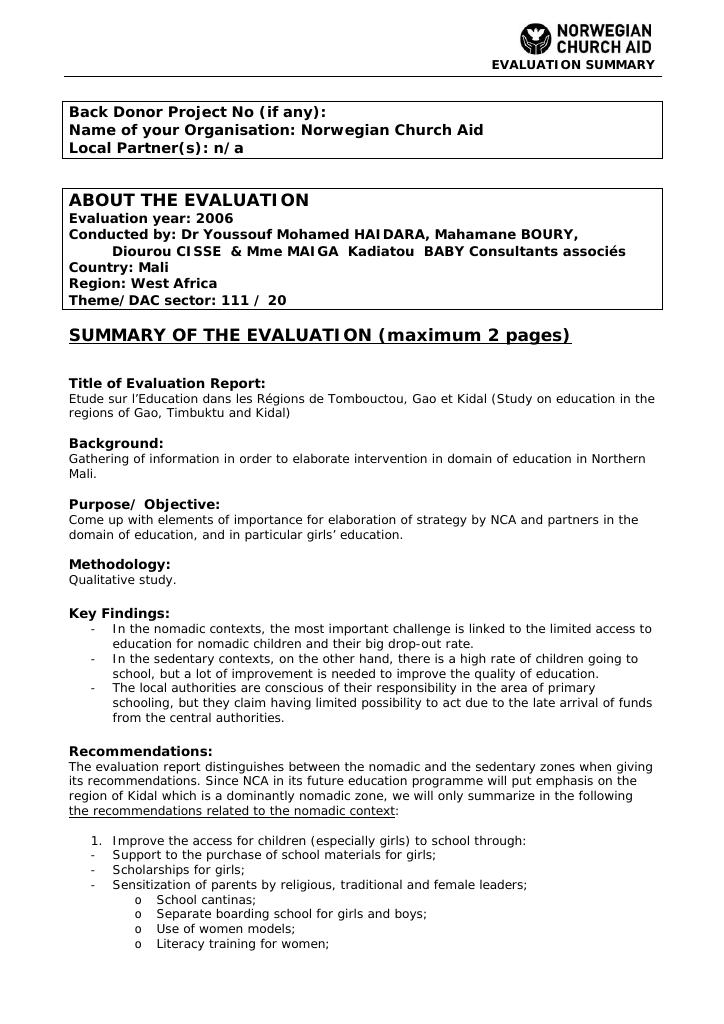Studie
Etude sur l’Education dans les Régions de Tombouctou, Gao et Kidal (Study on education in the regions of Gao, Timbuktu and Kidal)
Background Gathering of information in order to elaborate intervention in domain of education in Northern Mali. Purpose/objective Come up with elements of importance for elaboration of strategy by NCA and partners in the domain of education, and in particular girls' education. Methodology Qualitative study. Key findings - In the nomadic contexts, the most important challenge is linked to the limited access to education for nomadic children and their big drop-out rate.- In the sedentary contexts, on the other hand, there is a high rate of children going to school, but a lot of improvement is needed to improve the quality of education.- The local authorities are conscious of their responsibility in the area of primaryschooling, but they claim having limited possibility to act due to the late arrival of funds from the central authorities. Recommendations The evaluation report distinguishes between the nomadic and the sedentary zones when givingits recommendations. Since NCA in its future education programme will put emphasis on theregion of Kidal which is a dominantly nomadic zone, we will only summarize in the followingthe recommendations related to the nomadic context:1. Improve the access for children (especially girls) to school through:- Support to the purchase of school materials for girls;- Scholarships for girls;- Sensitization of parents by religious, traditional and female leaders;o School cantinas;o Separate boarding school for girls and boys;o Use of women models;o Literacy training for women;2. Improve the quality of education through:- Support to the elaboration of the curriculum;- Support to the initial and continued training of the teachers;- Support to the pedagogical follow-up;- Creation of school libraries and "lecture corners"- Development of the "little childhood"- Use of local radios for the training of teachers.3. Promote a democratic management of education through:- Capacity building of the competencies of the actors in the area of governance, lobby,conception and implementation of school projects, etc.- Organise exchange visits to other regions/countries;- Monitoring/advice in the area of planning and negotiation;Elaboration of modules in the area of cert ain competencies. Comments from the organisation The study will be followed up by NCA in the process of revision of the five-year plan for Mali in order to elaborate a more consistent program in the area of education focusing on the region of Kidal.
